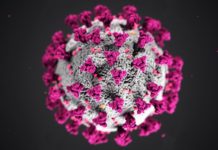The international aid organization Doctors Without Borders (also knowns as Medecins Sans Frontiers) released a report on Monday looking back at the Ebola outbreak and criticized the response to what they say is the “deadliest Ebola outbreak in history”, in particular the World Health Organization (WHO), which is leading the action against the disease.
Ebola Deaths
The report begins by noting that 24,000 have been infected with Ebola since the initial outbreak in December 2013, 10,000 of whom have died. Of that number, 500 were health workers that came to West Africa to fight the epidemic.
The WHO “plays a leading role” in coordinating organizations and governments during times of health crises, its worth often in acting as communication between parties to solidify and execute plans, however the Doctors Without Borders report claims the WHO did not recognize the Ebola threat early enough and did not acquire and send over nearly enough staff. The report also claims that the WHO repeatedly ignored Doctors Without Borders’ please for more action during meetings.
“Meetings happened. Action didn’t,” Doctors Without Borders emergency coordinator Marie-Christine Ferir said in the report. “I remember emphasizing that we had the chance to halt the epidemic in Liberia if help was sent now. It was early in the outbreak and there was still time. The call for help was heard but no action was taken.”
It was not until July of 2014 that the WHO created a regional hub to organize a robust response, by which time a second surge of Ebola had come. Even then, Doctors Without Borders were understaffed and spread thin.
It was not until August that the WHO declared an international health emergency. The change of stance occurred due to the disease hitting a first world country. A US doctor working for Samaritan’s Purse tested positive for Ebola and was sent back to the US to be treated at a hospital in Dallas. Concurrently, a nurse in Spain treated a Spanish citizen with Ebola and became infected, marking the first case of transmission outside of Africa.
Now that Ebola had become an “international security threat,” Doctors Without Borders international president Dr. Joanne Liu said, the WHO and other international powers could not ignore the disease, and went into action — but not after thousands of needless deaths, Doctors Without Borders said.
The report also blames the governments of Guinea and Sierra Leone for initially obstructing aid by claiming that aid organizations were simply looking for funding.

















